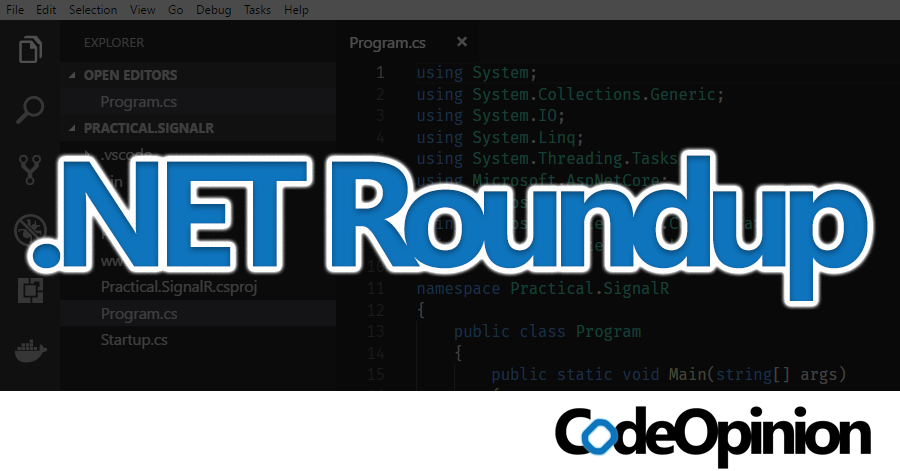Sponsor: Using RabbitMQ or Azure Service Bus in your .NET systems? Well, you could just use their SDKs and roll your own serialization, routing, outbox, retries, and telemetry. I mean, seriously, how hard could it be?

Here are the things that caught my eye this week in .NET. I’d love to hear what you found most interesting this week. Let me know in the comments or on Twitter.
Porting desktop apps to .NET Core
Since I’ve been working with the community on porting desktop applications from .NET Framework to .NET Core, I’ve noticed that there are two camps of folks: some want a very simple and short list of instructions to get their apps ported to .NET Core while others prefer a more principled approach with more background information. Instead of writing up a “Swiss Army knife”-document, we are going to publish two blog posts, one for each camp:
This post is the simple case. It’s focused on simple instructions and smaller applications and is the easiest way to move your app to .NET Core.
We will publish another post for more complicated cases. This post will focus more on non-trivial applications, such WPF application with dependencies on WCF and third-party UI packages.
If you prefer watching videos instead of reading, here is the video where I do everything that is described below.
Link: https://devblogs.microsoft.com/dotnet/porting-desktop-apps-to-net-core/
.NET Core 3.0 Progress
Link: https://twitter.com/ziki_cz/status/1133786512473018368
8 Techniques to Avoid GC Pressure and Improve Performance in C# .NET
In a .NET application, memory and performance are very much linked. Poor memory management can hurt performance in many ways. One such effect is called GC Pressure or Memory Pressure.
GC Pressure (garbage collector pressure) is when the GC doesn’t keep up with memory deallocations. When the GC is pressured, it will spend more time garbage collecting, and these collections will come more frequently. When your app spends more time garbage collecting, it spends less time executing code, thus directly hurting performance.
Link: https://michaelscodingspot.com/avoid-gc-pressure/
WCF vs gRPC
One of the alternatives recommended by Microsoft for organizations looking for a migration path away from WCF on .NET Framework is gRPC: a low-overhead, high-performance, cross-platform RPC framework. The upcoming .NET Core 3.0 has first-class support for gRPC; out of the box, you can create a new project with
dotnet new grpc.